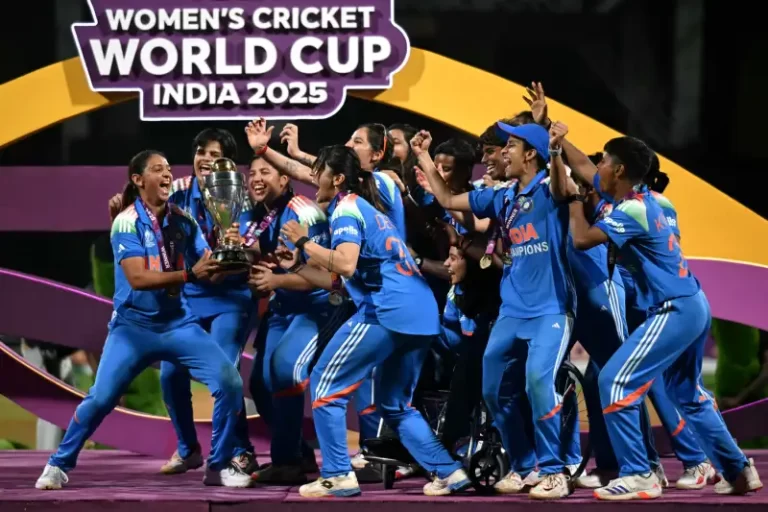In this tremendous achievement for chess, Gukesh Dommaraju aka D. Gukesh became the 18th world chess champion and the youngest ever to hold that title.
By doing this, he follows in the footsteps of Viswanathan Anand, the only other Indian to have received this glory. This historic triumph firmly secures Gukesh in the annals of chess history and serves as an inspiration for the next generation of Indian chess players.
In a dramatic finale to the 14th classical game of the match, Gukesh defeated reigning world champion Ding Liren of China. The match seemed to have been heading for a draw, but Ding made a blunder at move 55 with Rf2.
This blunder in a rook-bishop-pawn endgame, where Gukesh, had obtained an extra pawn, allowed the young Indian to convert his advantage into a victory. It was one of the moments of tension and strategy that captured Gukesh’s philosophy that even a small advantage is worth pursuing relentlessly.
The road to glory is never a straight one, hence proved!
The road to Gukesh’s historic victory was anything but a bed of roses. Ding Liren, not in good form at this point going into the match, showed his fighting spirit by winning the first game, thus launching a fight-to-the-finish contest. Gukesh, showing equal fierceness, won the 4th game, tying up the match. The games that followed were very tightly fought, with both players showing their brilliant strategies.
The turning point was in Game 11, as Gukesh took an adventurous and aggressive opening and gained the initiative. Nevertheless, Ding, with his ability to maintain his calm at crunch times, scored a powerful win in Game 12 to bring the match to a dead game.
Therefore, it came to the final game, where Gukesh’s steady pressure and Ding’s critical blunder bestowed the moment of glory on the young genius.
Strategies and Mental Toughness
The championship saw contrasting strategies from both players. Gukesh was committed to playing powerful openings and converting positions that were nearly equal into advantageous ones only with active play. He turned every slight edge he was able to find, as in the final game, to his advantage.
On the other hand, Ding seemed to be aiming for defendable positions in classics to streamline this experience into favorable rapid and blitz formats. Yet beneath, Gukesh’s perseverance paved his way to victory.
What sets Gukesh apart is his mental toughness and wisdom years beyond his being. The lesser fresher player seemed quite calm and composed under enormous pressure. With dedication to the game and profound calculations on the board, much of what stands is the shining testimony of his success.
The grooming of the WestBridge Anand Chess Academy under Viswanathan Anand was also of great consequence in bringing him this victory in the championship.
A Rising Chess Powerhouse

Gukesh’s victory is more of a personal milestone for him and increasingly indicative of India’s supremacy in the international chess platform.
In the past few years, young talents such as Arjun Erigaisi and R. Praggnanandhaa have been consistently performing at the highest levels to push each other to perform better. Having finished strongly in the Candidates Tournament, Gukesh qualified to challenge Ding and won a medal at the Chennai and Budapest Chess Olympiads.
With the broad array of talents that India boasts, one cannot help but notice the chess revival that is happening before the viewer’s eyes. His success is sure to inspire even a greater number of young players to carry on with the game, thereby solidifying India’s place in global chess competence.
The Road Ahead
Although Gukesh’s record is historic, it is just the foundation for him. Next in line would be attempting to match heights lifted by Magnus Carlsen, considered one of the strongest players of all time. Further effort would be necessary on his part to survive and compete within Carlsen’s zone.
Gukesh’s victory is bound to have a larger after-effect. With India being the seat of origin for chess, the country has had a long history of association with it. His win will surely provide impetus to chess as a sport and a career in India.
His rags-to-riches tale establishes a powerful metaphor for other young players.
The achievement of D. Gukesh as the youngest world chess champion is a pivotal moment for Indian chess and the whole world chess community. This achievement goes on to usher in Gukesh’s talents, tenacity, and strategic brilliance. By successfully echoing Viswanathan Anand’s accomplishments and inspiring a new generation of players, Gukesh continues to espouse Indian chess on the world platform.
He will undoubtedly be followed with bated breath and pride as he aspires to even greater goals. This win represents not just the success of an individual but a nation regaining its legacy in the field it once handed to the world.
Is India the ultimate chess champion of this decade? Let us know in the comments.





